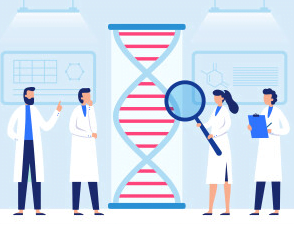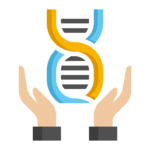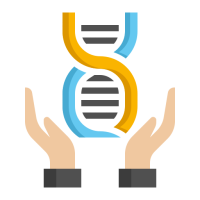Understanding the Genetic Counseling Process: A Comprehensive Guide
Genetic counseling is a pivotal aspect of modern healthcare, offering individuals and families insight into their genetic makeup, potential health risks, and strategies to manage or mitigate those risks. This process is crucial for those with a family history of genetic disorders, couples planning a family, and anyone concerned about their genetic predispositions. Here, let’s explore the comprehensive process of genetic counseling
Initial Assessment: Mapping Your Genetic Medical and Family History
We start by talking about your family’s health history it is like putting together a family tree. This involves gathering and analyzing detailed family and medical histories. During this step, the genetic counselor will ask you to provide comprehensive information about your relatives, including any known genetic disorders, chronic illnesses, and causes of death. This detailed history helps to identify patterns that might indicate hereditary conditions.

By examining your family’s medical background, the genetic counselor can create a genetic profile, pinpointing specific areas of concern that might require further investigation. This stage is crucial for understanding your genetic makeup and identifying potential genetic risks.
Educational Foundations: Understanding Genetics
Next, the focus shifts to education. The genetic counselor will explain genetic principles, inheritance patterns, and the meaning behind the genetic tests. This educational component is important as it helps you understand the scientific basis of genetics and how it applies to your situation.
You’ll learn about how genes are passed down through generations, what specific genetic mutations might mean for you, and the implications of different types of genetic tests. This knowledge helps you to make informed decisions about your health and any potential risks.
Personalized Testing: Finding the Right Genetic Tests
Once you’re understand the basics, your genetic counselor will offer genetic tests based on your personal risk profile. This step involves collecting your blood sample, which are then tested in a lab to identify any genetic abnormalities.

The decision to undergo genetic testing is made by you, considering the potential benefits and limitations. Genetic testing can reveal mutations, chromosomal abnormalities, and other genetic variations that may predispose you to certain conditions.
Result Interpretation: Making Sense of Your Genetic Test Results
Interpreting genetic test results is a complex process. Once the results are available, your genetic counselor will decipher these test results and explain what they mean for you and your family. This involves assessing the risk associated with any identified genetic abnormalities, taking into account your family history, lifestyle, and environmental factors.

The genetic counselor will translate the technical jargon of genetic test reports into clear, understandable language. You’ll understand the likelihood of developing certain conditions, the potential impact on family members, and possible preventive measures. This stage is about providing a balanced perspective, helping you grasp your genetic risks without causing unnecessary alarm.
Support: Providing Continuous Support and Resources
The next stage of the genetic counseling process is offering empathetic guidance and connecting you with resources and support networks. Receiving genetic information can be emotionally challenging, and it’s crucial to have support during this time. Your genetic counselor will provide you emotional support, helping you cope with any anxiety, uncertainty, or psychological impact of your genetic findings.

You’ll be connected with resources and support networks, ensuring you have access to the necessary tools and communities to navigate your genetic journey. Follow-up appointments are scheduled to monitor your progress and address any new concerns, making genetic counseling an ongoing, supportive relationship.
Understanding the Genetic Counseling Process: A Comprehensive Guide
Genetic counseling is a pivotal aspect of modern healthcare, offering individuals and families insight into their genetic makeup, potential health risks, and strategies to manage or mitigate those risks. This process is crucial for those with a family history of genetic disorders, couples planning a family, and anyone concerned about their genetic predispositions. Here, let’s explore the comprehensive process of genetic counseling.
Initial Assessment: Mapping Your Genetic Medical and Family History:
We start by talking about your family’s health history it is like putting together a family tree. This involves gathering and analyzing detailed family and medical histories. During this step, the genetic counselor will ask you to provide comprehensive information about your relatives, including any known genetic disorders, chronic illnesses, and causes of death. This detailed history helps to identify patterns that might indicate hereditary conditions.

By examining your family’s medical background, the genetic counselor can create a genetic profile, pinpointing specific areas of concern that might require further investigation. This stage is crucial for understanding your genetic makeup and identifying potential genetic risks.
Educational Foundations: Understanding Genetics:
Next, the focus shifts to education. The genetic counselor will explain genetic principles, inheritance patterns, and the meaning behind the genetic tests. This educational component is important as it helps you understand the scientific basis of genetics and how it applies to your situation.
You’ll learn about how genes are passed down through generations, what specific genetic mutations might mean for you, and the implications of different types of genetic tests. This knowledge helps you to make informed decisions about your health and any potential risks.
Personalized Testing: Finding the Right Genetic Tests:
Once you’re understand the basics, your genetic counselor will offer genetic tests based on your personal risk profile. This step involves collecting your blood sample, which are then tested in a lab to identify any genetic abnormalities.
The decision to undergo genetic testing is made by you, considering the potential benefits and limitations. Genetic testing can reveal mutations, chromosomal abnormalities, and other genetic variations that may predispose you to certain conditions.
Result Interpretation: Making Sense of Your Genetic Test Results:
Interpreting genetic test results is a complex process. Once the results are available, your genetic counselor will decipher these test results and explain what they mean for you and your family. This involves assessing the risk associated with any identified genetic abnormalities, taking into account your family history, lifestyle, and environmental factors.

The genetic counselor will translate the technical jargon of genetic test reports into clear, understandable language. You’ll understand the likelihood of developing certain conditions, the potential impact on family members, and possible preventive measures. This stage is about providing a balanced perspective, helping you grasp your genetic risks without causing unnecessary alarm.

Support: Providing Continuous Support and Resources:
The next stage of the genetic counseling process is offering empathetic guidance and connecting you with resources and support networks. Receiving genetic information can be emotionally challenging, and it’s crucial to have support during this time. Your genetic counselor will provide you emotional support, helping you cope with any anxiety, uncertainty, or psychological impact of your genetic findings.
You’ll be connected with resources and support networks, ensuring you have access to the necessary tools and communities to navigate your genetic journey. Follow-up appointments are scheduled to monitor your progress and address any new concerns, making genetic counseling an ongoing, supportive relationship.

Conclusion:
The genetic counseling process is a comprehensive journey that combines scientific expertise with compassionate care. From creating a genetic profile to offering continuous support, this process will help you to make informed decisions about your health and well-being, ultimately enhancing your quality of life and that of your family.
To start your genetic counseling journey, you can book your appointment here.
